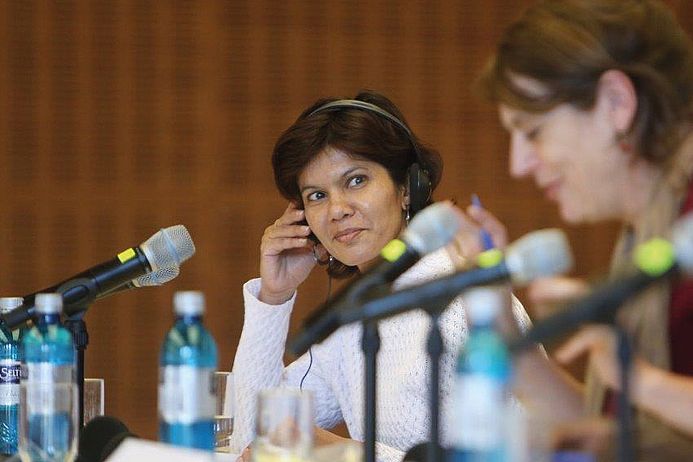With impressing confidence, a number of speakers from the South at the medico conference ‘Beyond Aid’ in February 2014 rejected the role of “recipient of aid”, insisting instead on cooperation between equal partners. One of them was Shreen Saroor, of the Women’s Action Network in Sri Lanka. Her paper started by drawing a devastating picture of the state of the Tamil minority in the north and east of the country. She spoke of intimidation, poverty, dispossession, rape and murder – and a sense of being foresaken by the world.
At the same time, however, she talked of the courage of many women in holding vigils despite all the danger, organising protests and publicising human rights violations, while knowing there was no help from outside. Experience has shown that money from NGOs and the resulting demands shatter women’s unity. Extensive experience of being disenfranchised and disempowered is captured in a single sentence: ‘Today, we tell international donors – leave us alone.’
Saroor was born in 1969 in northwest Sri Lanka, a region traditionally inhabited by Tamils of the Muslim faith, a minority among the minority. She had direct experience of being discriminated against and displaced. After studying at university in Colombo and working several years in the private sector, she worked for five years for a Canadian development organisation operating in Sri Lanka. However, right from the start she built up her own structures.
For example, she founded the Mannar Women’s Development Federation (MWDF), which today is a widespread network of women’s groups. She also founded the Mannar Women For Human Rights and Democracy (MWHRD), a committee which supports women in their resistance against sexual violence by the military. She also works as a volunteer for the Sri Lankan Centre for Human Rights and Development (CHRD), which provides legal assistance to victims of political persecution and war.
Cooperation with medico began in 2005. One year after the devastating tsunami, Shreen Saroor was a member of a fact finding mission initiated by medico and Bread for the World which investigated the effects of international aid efforts in the country. The result was shocking, and strengthened both medico and Saroor in their conviction that if reconstruction was to be effective, just and sustainable, it had to be handled by local people.
Since then, she has been medico’s closest partner in Sri Lanka – not as a recipient of project promotion, but as a highly-experienced and gifted networker. Her key role is bringing people together and encouraging them to organise and voice their demands, with the greatest possible independence. It is this attitude, based on decades of commitment to peace and justice, which is encapsulated in the sentence delivered on the medico podium in Frankfurt in February 2014.
Thomas Seibert, Christian Sälzer

